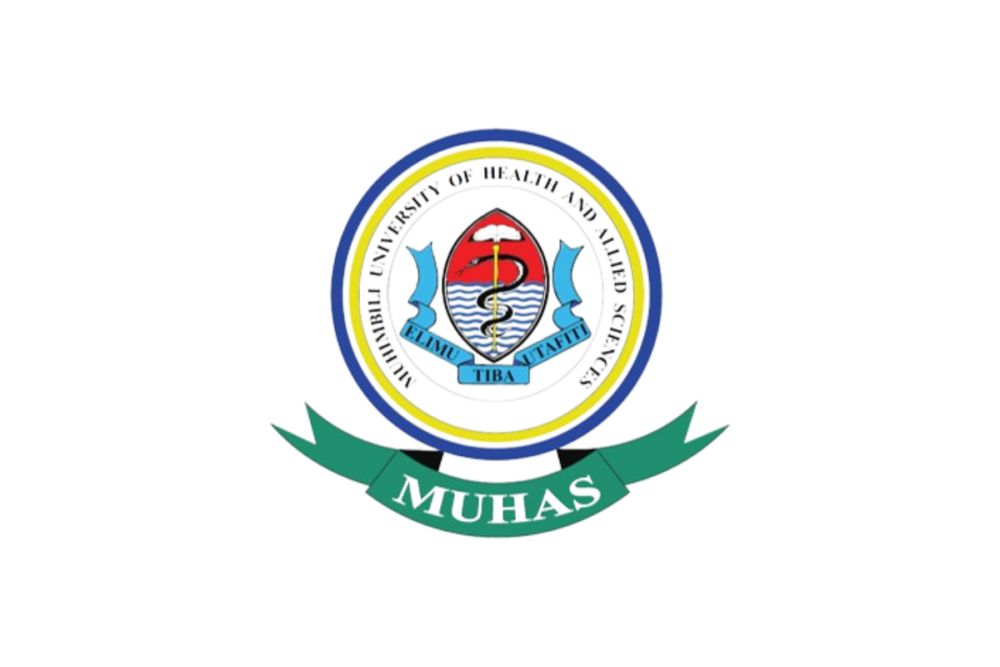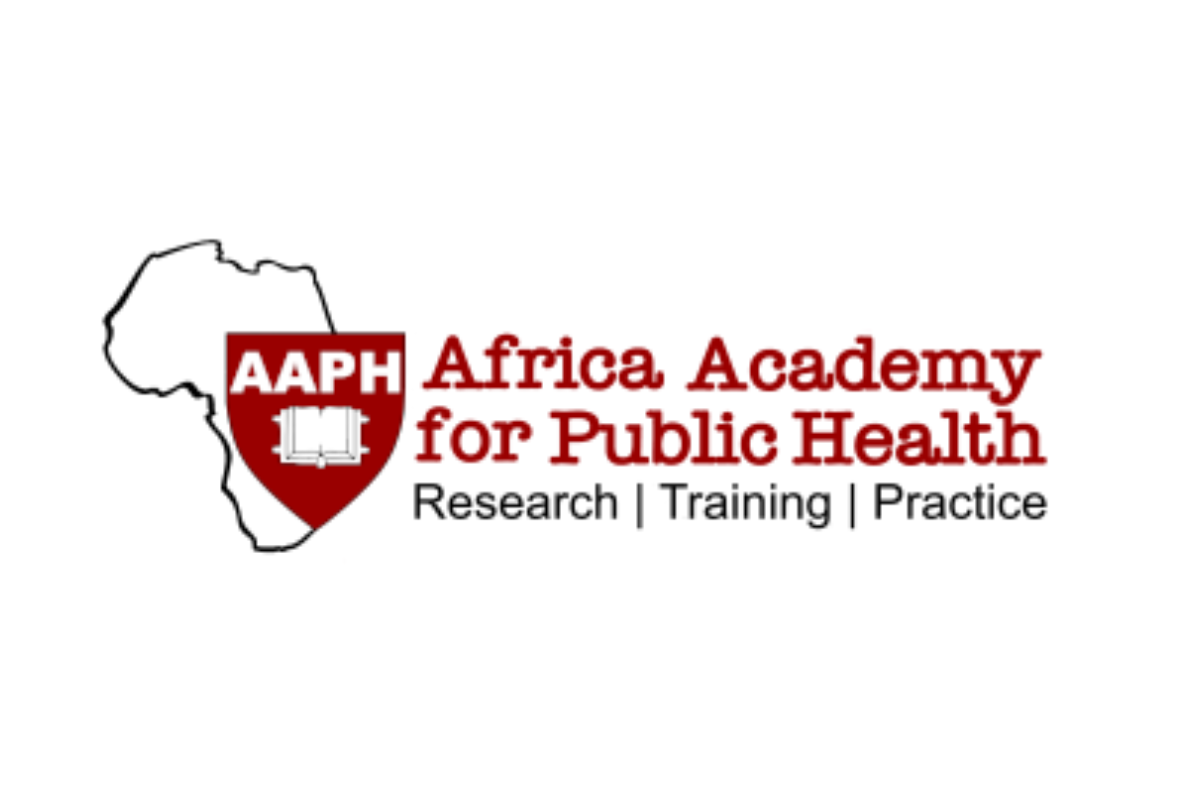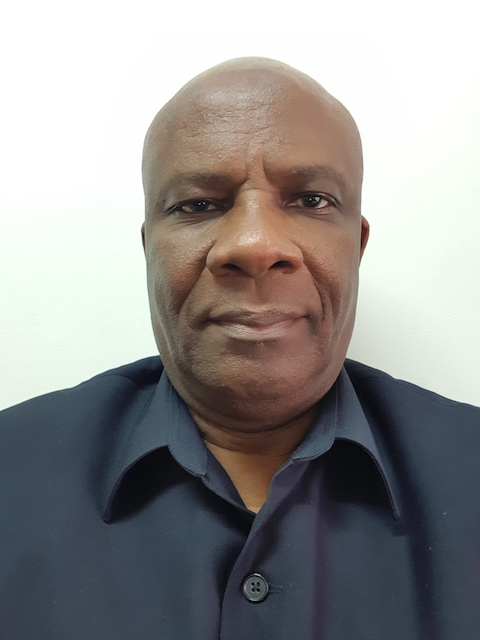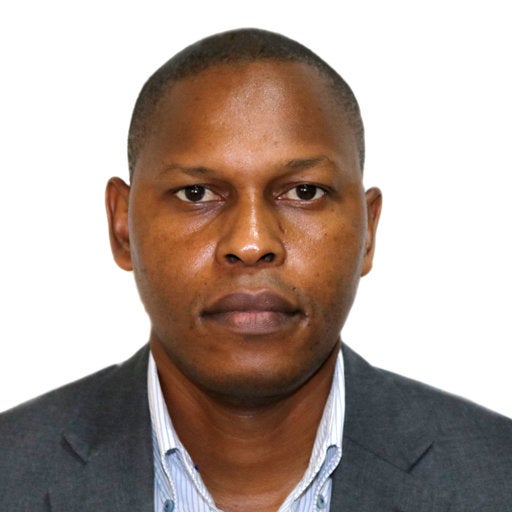The HIV Implementation Science (HIS) Training Program
About the HIV Implementation Science Training Program
The HIV Implementation Science Training Program (D43TW009775) is supported by the Fogarty International Center of the National Institutes of Health and aims to build capacity for research in HIV implementation science.
Program Goals
The goals of the HIV Implementation Science (HIS) Training Program are to:
- Train a critical mass of mid-level and senior researchers to (a) work as principal investigators leading independent research programs focused on implementation science questions related to HIV-affected children, adolescent HIV, and integrated HIV nutrition, and non-communicable disease interventions and (b) teach and mentor junior trainees in implementation science research methods at the doctoral-level.
- Build a critical mass of junior public health and medical professionals who can design and successfully carry out rigorous research projects in HIV Implementation Science, Impact Evaluation, and Health Systems Research.
- Extend the pipeline of HIV-implementation Science Researchers by developing a new PhD program in Implementation Science at Muhimbili University of Health and Allied Sciences (MUHAS), in Tanzania.
Program Format
The HIV Implementation Science (HIS) Training Program is structured to provide training opportunities for participants from Tanzania both in Boston and in Dar es Salaam including:
- 2-year Postdoctoral Fellowships for mid-level to senior research trainees
- 1-year Masters Fellowships for junior researchers
- The development of a PhD program in Implementation Science at MUHAS and 5 Doctoral Fellowships
- Short courses in Dar es Salaam
- Annual research symposia
Program Contact
For questions, please contact the Administrative and Communications Coordinator, Petra Huang, at pshuang@hsph.harvard.edu.
Program Leadership and Partners
The program is jointly led by the Harvard T.H. Chan School of Public Health (HSPH), Muhimbili University of Health and Allied Sciences (MUHAS), and the Africa Academy for Public Health (AAPH)
Fellowship Opportunities
Summer Training at Harvard Chan
The Harvard T.H. Chan School of Public Health, together with Muhimbili University of Health and Allied Science (MUHAS) and the Africa Academy for Public Health (AAPH), offer a limited number of summer research training fellowships at Harvard Chan to Tanzanian public health researchers, physician scientists, and other health professionals through the HIV Implementation Science Research Training Program.
The goal of this training program is to develop a cadre of public health and medical researchers in Tanzania prepared to lead research and scientific projects.
Through focused mentorship and coursework, trainees are supported to develop skills in methodological and substantive aspects of HIV Implementation Science. The HIV Implementation Science (HIS) Research Training Program focuses on implementation science, impact evaluation, and health system research for HIV treatment, prevention of mother-to-child transmission, and nutrition interventions.
The program provides six-week fellowships in Boston, Mass., United States for trainees to attend the Summer Session in Public Health Studies at Harvard Chan as non-degree students. Trainees must commit to attending the full Summer Session and taking 7.5 credits of coursework. This program provides an opportunity to refine methodological skills through focused coursework while working with a faculty mentor from Harvard to advance research plans.
Fellows are expected to return to Tanzania upon completion of their training in Boston, where they will receive continued mentorship for post-doctoral, doctoral, or pre-doctoral research.
Candidates for summer training fellowships must be admitted into the Harvard Chan Summer Program via a separate application process. Fellowships are awarded to postdoctoral researchers or current students enrolled in a doctoral or master’s program in medicine, public health or other related field at MUHAS, and other Medical Universities in Tanzania. Interested members of staff from other institutions, such as Ifakara Health Institute, AAPH, or Management Development for Health (MDH) are also encouraged to apply. Successful candidates will have a demonstrated interest in HIV implementation.
Please note that applications have closed for 2025. Please check back later for more information about the next application cycle.
Summer HIV Implementation Science (HIS) Research Training Fellows faculty and staff at the Chan School in July 2024.
(Left to Right: Chris Sudfeld, Amani Kway, Happiness Saronga, Rahma Bakari, Grace Shayo, Patricia Munseri, Wafaie Fawzi, Lizi Fine, Prosper Njau, Suleiman Chombo, Kilaye Karino, Kemji Nwokogba, and Nile Nair).
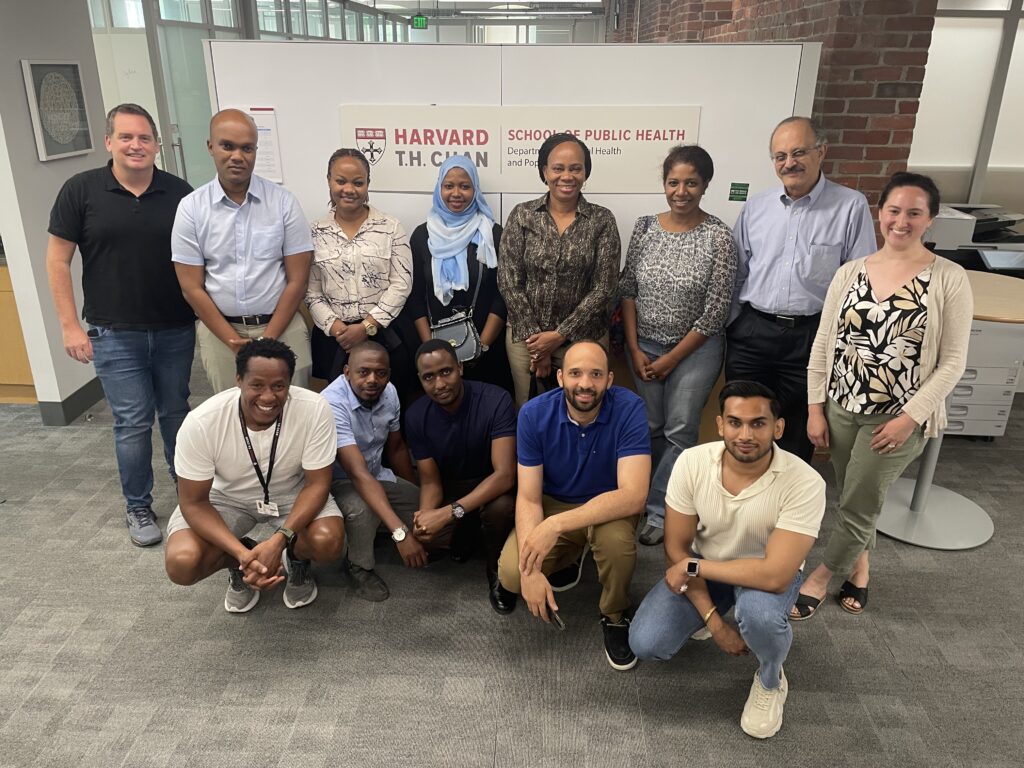
PhD Research Fellowship
The Harvard T.H. Chan School of Public Health (Harvard Chan), in partnership with Muhimbili University of Health and Allied Science (MUHAS)and the Africa Academy for Public Health (AAPH), offers a limited number of Ph.D. research training fellowships at Harvard Chan to Tanzanian public health researchers, physician-scientists, and other health professionals.
Applicants to the Ph.D. Fellowship must be currently enrolled in a Ph.D. program in Tanzania or outside the country. The program does not support tuition or registration costs. Selected Fellows will be offered a 1-year visiting position with training opportunities at Harvard Chan in Boston, Mass, United States, and at Muhimbili University of Health and Allied Sciences. Approximately 4 months will be spent in Boston.
Through focused mentorship and coursework, the trainee(s) will be supported to develop skills in methodological and substantive aspects of HIV Implementation Science. Further, the trainee(s) will complete coursework as a non-degree student at Harvard Chan and work with faculty mentors from Harvard and MUHAS to advance his/her Ph.D. Dissertation research.
Upon completion of training in Boston, he/she will be required to return to Tanzania to further his/her research in this area.
Please note that applications have closed for 2025. Please check back later for more information about the next application cycle.

